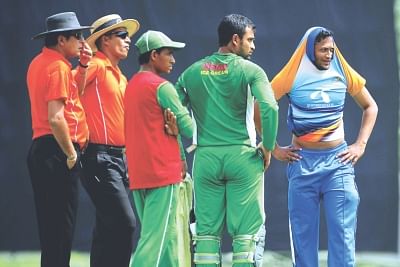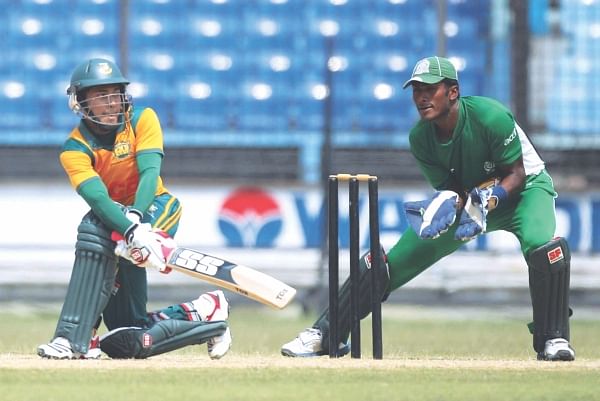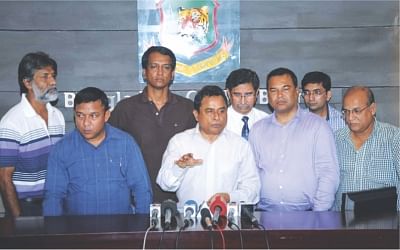| Home - Back Issues - The Team - Contact Us |
 |
| Volume 11 |Issue 21| May 25, 2012 | |
|
|
Sport Unwanted Power Plays It has been two months since the last Super League match. A tiff between two rival clubs led to the long hiatus. Embroiled in power struggles, domestic cricket in Bangladesh continue to suffer. Biswajit Roy
When the Bangladeshi cricket team was elevated to the elite club of Test nations in 2000, it was expected that the country's cricketing officials would graduate from being amateurs to professionals. After the passage of eleven years, it’s still difficult to say if we are moving in the right direction. Ardent cricket lovers have long been crying out for professionalism in the Bangladesh Cricket Board's activities, without which, it is impossible to achieve the set goals or be established as a leading cricketing nation. But the manner in which the board has run its operations lately has led many to believe that the BCB, although successful in certain quarters, has taken several steps backwards. The question was raised after the board, recently, complicated a simple matter. The crisis surrounding the Dhaka Premier Division Cricket League highlighted the ineffectiveness of the BCB. It also emphasised the need for a powerful and strong-willed chief executive officer (CEO) to run the show. The Dhaka Premier League came to an abrupt halt on March 28 after the powerful club, Abahani, refused to take the ground halfway through their game against Victoria Sporting Club, enforcing the match referee to declare the latter as winners. The incident took place as Abahani protested the presence of Victoria's Pakistani cricketer Mohammad Yousuf, alleging that he did not have the clearance to play against Victoria, from his former club Mohammedan.
The incident stirred a lot of hue and cry, with both the clubs and the game's apex body adding to the mess. The crisis, was finally resolved after two months as a new date has been fixed (May 31) for the resumption of the Super League. However, one can't be sure if the BCB president, Mustafa Kamal's, latest ruling will be honoured as the board failed to stick to their earlier commitments.
The board should take the responsibility for wasting so much precious time in an otherwise stop-start domestic calendar. The most pathetic part of the episode was that the board was not able to put its foot down on the matter and command the concerned sides to obey the law; instead, they frustratingly gave in to the pressure from the clubs. It was an incident which showed that cricket in the country is at the whims of power groups. "The domestic cricket here has a structure of which there's no blueprint anywhere else in the world. It stops, it starts; it would be nice to see these games take place in these days, rather than suspending the entire tournament due to a fall-out between two teams. That's not good for cricket in this country. I know it's a different culture but as an outsider looking in, it can't be good for cricket. We are all trying to say that domestic cricket is where we want our cricketers to learn; they can't learn by sitting back! That's not helping them at all," said Law before his departure. One may not disagree with the observation of the Australian, although he only had a nine-month stint with the Tigers. The quality of a cricket team depends on the domestic structure that supplies the talent. Unfortunately we have a very poor domestic structure, which is the reason why our team has rarely been consistent in their performances at the international level. The recent events that took place during the domestic games paint a bleak picture of cricket in Bangladesh. Things can indeed be complicated if power politics are involved. If the tide is to be turned, the BCB must look to fix the problems within.
|
||||||||
Copyright
(R) thedailystar.net 2012 |


